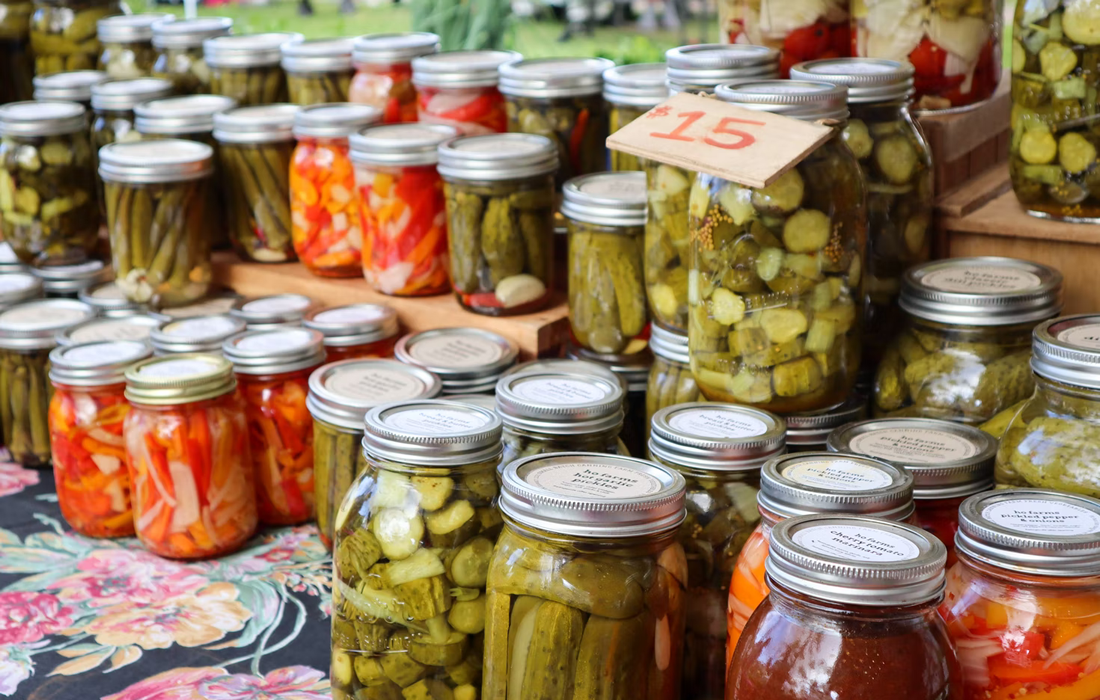Nutrition and Supplements
The Antiinflammatory and Immunomodulatory Benefits of Fermented Plant Foods
Chronic inflammatory diseases are the leading cause of mortality worldwide. Inflammation is part of the host’s complex defense mechanism. It is the immune system’s biological response against different infectious or non-infectious stimuli.
These stimuli may activate inflammatory signaling pathways such as nuclear factor-kappa B (NF-κB), mitogen-activated protein kinase (MAPK), and Janus kinase signal transducer and activator of transcription (JAK-STAT) pathways underlying the pathology of many chronic diseases.
There are many natural compounds that have been known to exert significant biological and pharmacological properties and play a valuable role in treating disease. Fermented plant products are highly popular foods worldwide, and are a rich source of natural compounds such as probiotics and phytochemicals with known biological properties.
Traditionally, fermentation was a method to preserve foods for a longer time; however, this process recently has attracted great attention due to the increase in the nutritional value of foods and the production of health-promoting components. Some examples include:
Fermented Berries
Berry fruits are well known for their significant health benefits. Berries are a good source of various micronutrients and bioactive compounds with antioxidant properties, including vitamins C and E, selenium, carotenoids, and most importantly, phytochemicals such as anthocyanin and tannins.
Berry polyphenols and their metabolites affect gut microbial composition by increasing the frequency of beneficial genera, including Bifidobacterium, Lactobacillus, and Akkermansia. Also, their metabolites have been shown to suppress inflammatory cytokines and mitigate gut inflammation.
Fermentation may increase the positive effects of berries due to an increase in polyphenols and the antioxidant capacity of fermented products. Fermented blueberries and blackberries modulate the gut microbiota populations by increasing beneficial bacteria.
Fermented Blueberries
Blueberries are among the richest sources of phenolic compounds, such as anthocyanins, flavonols, and proanthocyanidins which possess a high antioxidant capacity. Because of that, they are known to have valuable health benefits.
Fermented blueberry and cranberry juices (fermented with bacteria Serratia vaccinii, isolated from blueberry microflora) have been reported to suppress nitric oxide (NO) production activated by LPS/interferon-gamma (INF-γ) in mouse macrophages.
Also, fermented polyphenol-enriched blueberry preparation (PEBP) could inhibit breast cancer cell line growth and breast cancer stem cell development. Fermented blueberries may counteract obesity and diabetes, at least partly, through anti-inflammatory and antioxidant activities.
Fermented blueberries may prevent neurodegenerative disease through anti-inflammatory and antioxidant activity. In neuronal cell culture, fermented blueberries with Serratia vaccinii induced antioxidant enzyme activities and prevented neuronal cell death.
In a study in rats, intake of freeze-dried fermented blueberries with L. plantarum DSM 15,313 significantly decreased blood pressure in healthy rats and rats with L-NAME induced hypertension.
Fermented Blackberries
Blackberry is known for its high content of antioxidant compounds, particularly anthocyanins, ellagitannins, gallic acid, and significant antioxidant capacity based on its high oxygen radical absorbance capacity.
Some studies have shown the anti-inflammatory potential of anthocyanins and proanthocyanidins from fermented blueberry–blackberry beverages through NF-κB signaling inhibition.
Sauerkraut
Sauerkraut is a nutritious fermented cabbage product widely consumed as a traditional dish in many European and Asian nations and the United States. it is produced by LAB fermentation of shredded, fresh white cabbage salted with 2–3% sodium chloride.
Scientific research strongly supports the health-promoting properties of sauerkraut by exerting anti-inflammatory, antioxidant, and anticarcinogenic activities and protecting against oxidative DNA damage.
Kimchi
Kimchi is a naturally fermented vegetable food with LAB. It is the traditional side dish in Korea which is made of different raw vegetables, mainly Chinese cabbage (Brassica rapa), fermented in a seasoning mixture such as red pepper, garlic, ginger, green onion, and fermented seafood sauce.
Kimchi is considered a unique probiotic food with 108–9 CFU/g LAB remaining alive in kimchi after fermentation.
Kimchi and its ingredients exert an anti-inflammatory function by suppressing COX-2 and iNOS expression and NF-κB pathway activation. Antioxidant and anti-inflammatory effects of this functional food are attributable, at least in part, to its biological compounds generated during fermentation.
Conclusions
As we can see many studies have shown the health benefits that fermented plant products can have, most of which are believed to be due to the promotion of a good gut microbiota balance with their high probiotic and phytochemical content.
They can help promote immune system performance, modulate inflammatory responses, and improve our health. They can protect against different chronic inflammatory conditions by decreasing oxidative stress, modulating inflammatory signaling responses, and improving our immune system.
Source:
Roghayeh Shahbazi, et al. Anti-Inflammatory and Immunomodulatory Properties of Fermented Plant Foods. Nutrients. 2021 May; 13(5): 1516. Published online 2021 Apr 30. doi: 10.3390/nu13051516
Image from:
Photo by little plant on Unsplash

